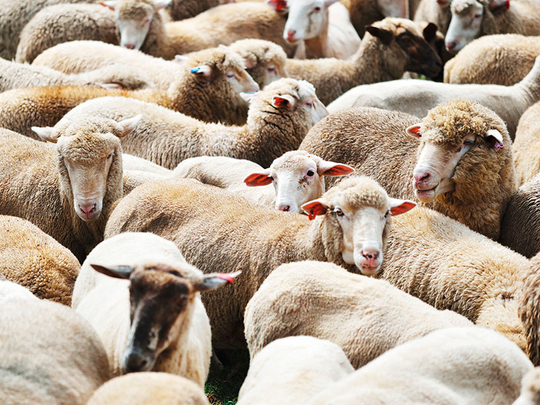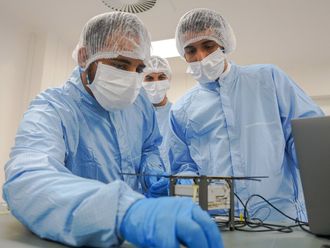
Austin, Texas: Human-sheep hybrids have been created by scientists, opening the door for human organs to be grown inside the creatures for use in transplants or to cure diabetes.
A team at Stanford University successfully grew embryos, which had both sheep and human cells, inside a surrogate for three weeks.
It is the first stage towards growing an unlimited supply of human organs for transplant and even providing a cure for type 1 diabetes.
The next step is to implant human stem cells into sheep embryos which have been genetically modified so they cannot grow a pancreas, in the hope that human DNA will fill in the missing code. The team is to apply for permission to extend the experiment to 70 days to see if the human cells really can create an organ.
Speaking at the annual meeting of the American Association for the Advancement of Science in Austin, Dr Hiro Nakuachi, leading the research, believed that organs grown in animals for human transplant would be available within 10 years.
“We have already generated a mouse pancreas in rats and then transplanted those into a diabetic mouse and were able to show almost a complete cure without any immunosuppressants,” he said. “When it comes to human-sheep it seems more difficult. So we would like to proceed a little longer and this time use organ-deficient embryos.
Shortage crisis
“It could take five years or it could take 10 years, but I think eventually we will be able to do this.”
But Robin Lovell-Badge, of the Francis Crick Institute in London, warned the resulting organs may still be rejected by the human body.
“Even if they succeed in replacing all pancreatic cell types in the sheep with human cells, the blood vessels within the pancreas will be sheep derived,” he warned. The organs could not be used for transplants into humans without triggering the immune system to reject them — and this would probably be a very fast rejection.”
Britain faces a transplant shortage crisis as advanced medicine has meant many more lives are being saved, thus making fewer donor organs available.
Scientists had hoped that pig or sheep organs could be used directly because they were roughly the same size as human organs, but they were always rejected. The new approach overcomes rejection because it uses human stem cells.
Sheep also have similar hearts and lungs and their embryos have previously been shown to form chimeras with goat embryos.
The process is more efficient than in pigs. Transplanting 40-50 embryos into pig surrogates results in only 14 piglets, while transferring three to four sheep embryos yields up to three foetuses.
Current rules ban labs from allowing the survival of hybrids beyond 21 days, so the surrogate animal was slaughtered after three weeks.












